Navigation – English Reading Introduction
Navigation
Introduction
By navigation is understood any act or procedure that will ensure the sapety of passangers and crew, vessel and cargo during a voyage from a point of departure to a destination.
This safety is greatly determind by good seamanship.
And since good seamanship refer to The Human Factor (HF). It is obvious that the influences on safety on board vessels is largely determind by act of the seafarers on board.
Therefor the manning of the vessel must be planned very accurately, and becouse most vessels are manned with multy lingual crews, special attention should be paid to the international standardized from of maritime communication. Both intership and intraship.
Manning
All vessel have one thingin common, they must be manned with qualified crews.
On board vessels the two main departements are the deck departement and the engine room departement.
The radio management is often integrated in the deck departement.
The head of the deck departement is the First mate – or Chief officer
The Chief Engineer is the head ef engine room departement
Officers are assisted by Ordinary seamen and able (bodied) seamen (OS and ABS)
An “able seamen” is the experienced seafarer. He or She will often act as man-at the-wheel (helmsman), or lookout.
The boatswain, or bosun, is the head of the rating (OS and ABS)
Apprentice officers are officers in training.

Nowaday many vessels are manned with General Purpose Officers – or Multi- Purpose Officers – who have been trained to perform the duty of the mate, engineer and radio operator together.
Duties
Of course the main responsibility of all the deck officers on merchant vessels is navigation. I.e. getting the vessel safety to her destination.
There are many other duties to be performed in the deck departement.
The First mate is responsible to making up the stowage plan, supervion of loading and discharging of the cargo and general ship maintenance.
The second mate is responsible for the navigation equipment.
The Third mat will often act safety-officer. He or She is responsible to maintenance of all the safety equipment on board
The main duties of engineering-officer in the engine room departement are the maintenace and overhauling of the main engine and the auxiliary-engines.
The Captain, or the Master, is Ultimately responsible for all that goes on board the vessel.
Usually he has not been integrated in the watch-keeping system on the bridge. If he thinks it necessary to appear on the brige and interfere with the work of the officer on the watch (OOW), or the Master is called to the bridge by the OOW, he must clearly indicate that he will become the conning officer by saying “ I Now have the watch” To confirm this, the OOW will then answer “You Now Have the Watch”
The tasks of radio operator are to contact shore base stations and orher vessels in cases of distress, to transmit urgency messages,safety messages when there are imminent danger to navigation, to listen to notices to marine, weather report and navoigational warnings and to the maintain contact with other ships for a safe and efficient voyage.
admin
11 May 2023
What is “cargo plan”. When applied to a ships A discussion between the shore and ship to plan the procedure for loading cargo Notices to marine _________ carefully and regularly to avoid grounding Should be studied Wreck sand rock are not easily _________ by the signal Detected To help the preparations to leave the …
admin
11 May 2023
Berthing 1. General .1. Is/are the propeller(s) clear?.1.1. Yes, the propeller(s) is/are clear..1.2. No, the propeller(s) is/are not clear..1.3. Keep the propeller(s) clear. .2. Are fenders on the berth? .2.1. Yes, fenders are on the berth..2.2. No, fenders are not on the berth..3. Have fenders ready fore and aft. .2. Berthing.1. We will berth …
admin
11 May 2023
Unberthing .1. Stand by engine(s). .2. Are you ready to get underway?.2.1. Yes, we are ready (to get underway)..2.2. No, we are not ready (yet) ( to get underway)..2.3. We will be ready to get underway in … minutes. .3. Stand by for letting go..4. Single up the … lines and … springs fore …
admin
11 May 2023
Tug assistance .1. We will take … tug(s)..2. The tug(s) will pull / push. .3. We use the towing line(s) of your vessel..3.1. We use the towing line(s) of the tug(s). .4. Stand by for making fast the tug(s). .5. Use the centre lead / panama lead..5.1. Use the fairlead~ on port side / …
admin
10 May 2023
Watchkeeping The 24-hours-period on board vessel is divided into 6 shift, or watches, as they are called. Each watch last 4 hours. The watches are First watch (2000 hrs – 24 hours) Middle watch (0000 hrs – 0400 hrs) Morning watch (0400 hrs- 0800 hrs) Forenoon watch (0800 hrs – 1200 hrs) Afternoon watch …
admin
10 May 2023
Idioms abaft the port beambetween the port quarter abbreviationa shortened form of a word or phrase able bodied seamanexperienced seafarer on the deck dept. afternoon watch1200 hrs – 1600 hrs aidhelp alteration coursechange direction appearemerge, float to the surface, arise, show up apprentice officertrainee officer (cadet) appropriateexact, precise, suitable auxiliary engine, secondary motordonkey engine, …
13 Feb 2024 573 views
CHAPTER III Life-saving appliances and arrangements PART A-GENERAL Regulation 1 Application 1 Unless expressly provided otherwise, this chapter shall apply to ships the keels of which are laid or which are at a similar stage of construction on or after 1 July 1998. 2 For the purpose of this chapter the term a similar …
26 Mar 2023 175 views
SOLAS 1974 CHAPTER XI-2 SPECIAL MEASURES TO ENHANCE MARITIME SECURITY Regulation 1 Definitions 1. For the purpose of this chapter, unless expressly provided otherwise: 1. Bulk carrier means a bulk carrier as defined in regulation IX/1.6. “Bulk carrier means a bulk carrier as defined in regulation IX/1.6. ADFINES NORTH This …
22 Aug 2023 129 views
Beberapa Materi yang akan di uji dalam kaitannya dengan ujian negara untuk mendapatkan sertifikat Operator radio umum Mualim REOR diantaranya: Bahasa Inggris GMDSS Peraturan Radio Perjanjian Internasional Servis Dokumen Tekhnik Radio Telephony Radio Ujian Operator radio umum Mualim terdiri dari Ujian praktek dan teori Untuk ujian Praktek akan di selenggarakan oleh lembaga diklat dengan beberapa …
11 May 2023 99 views
What is “cargo plan”. When applied to a ships A discussion between the shore and ship to plan the procedure for loading cargo Notices to marine _________ carefully and regularly to avoid grounding Should be studied Wreck sand rock are not easily _________ by the signal Detected To help the preparations to leave the …
11 May 2023 98 views
Berthing 1. General .1. Is/are the propeller(s) clear?.1.1. Yes, the propeller(s) is/are clear..1.2. No, the propeller(s) is/are not clear..1.3. Keep the propeller(s) clear. .2. Are fenders on the berth? .2.1. Yes, fenders are on the berth..2.2. No, fenders are not on the berth..3. Have fenders ready fore and aft. .2. Berthing.1. We will berth …
03 Feb 2024 97 views
Bagian ini akan menjadi sesi tanya jawab, menggunakan model, papan magnetik dan situasi real-time berbasis komputer atau simulator. Trainee harus sudah benar-benar memahami COLREGS dan aplikasinya, jadi sesi ini akan menjadi keperluan revisi dan konsolidasi. Jawaban “panggil Nakhoda” tentu saja tidak lagi tersedia bagi mereka. Perhatian peserta pelatihan harus diarahkan pada kasus tubrukan dan putusan …





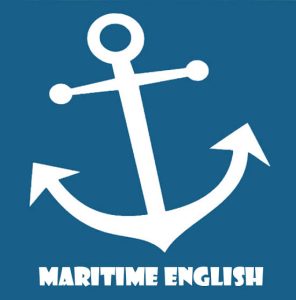
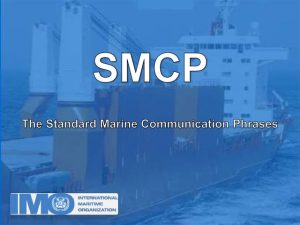

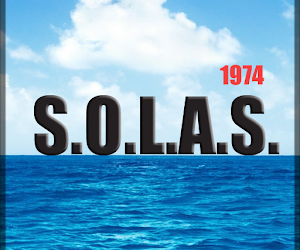

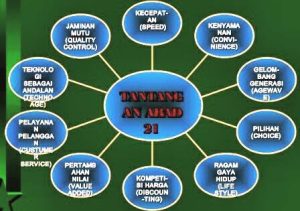
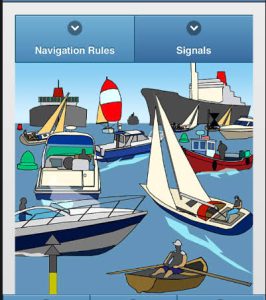

Comments are not available at the moment.